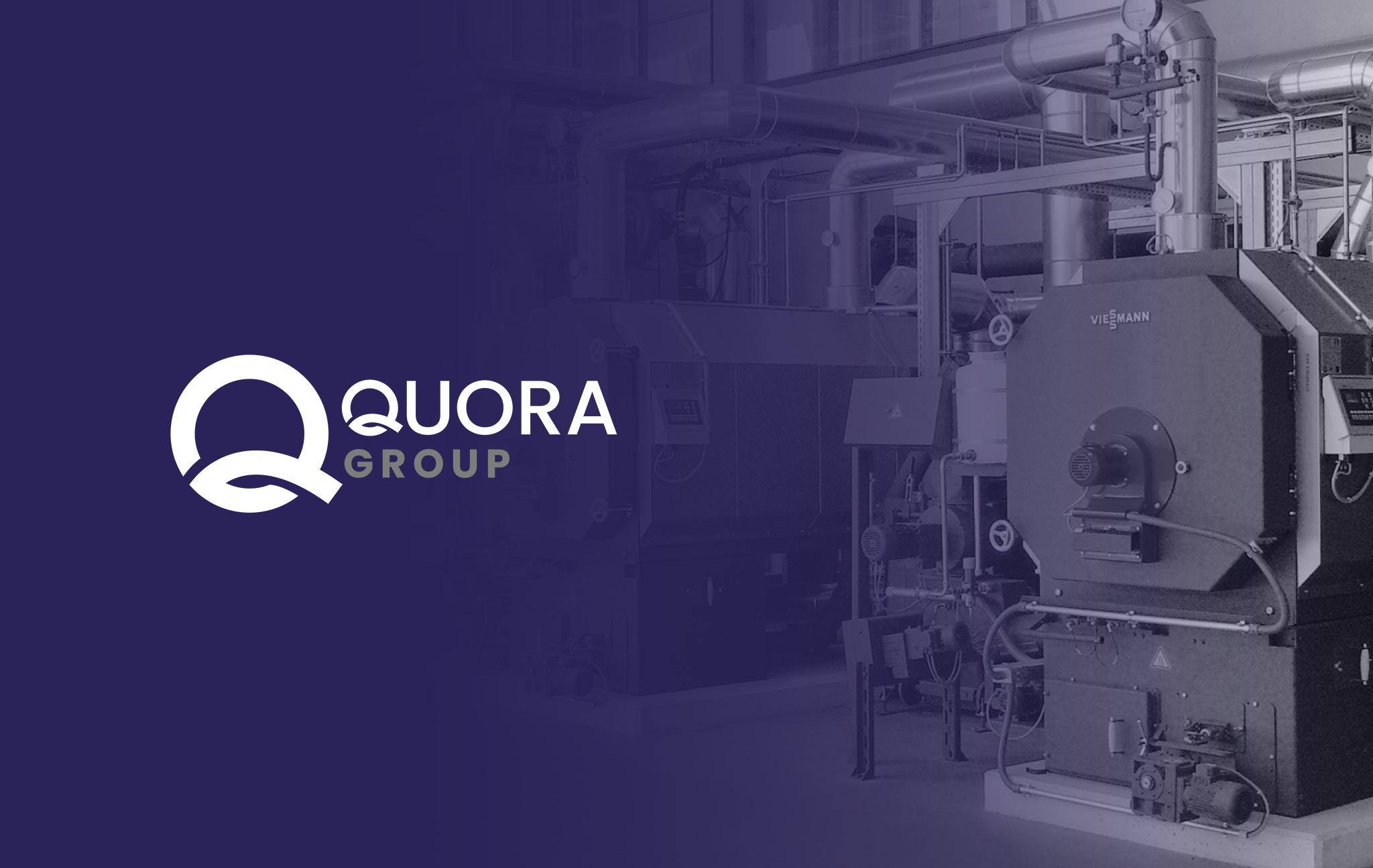The concept of being able to heat your premises via waste is an appealing one – especially in light of rising energy bills across the UK. Unfortunately, this line of thinking often leads to confusion around biomass and how it works in a heating system.
Biomass boilers use biological mass, typically in the form of wood and plant materials, to create heat energy and generate electricity. They don’t simply burn your waste and create energy – they are purpose-built energy solutions that utilise wood fuel to provide heat and hot water.
However, the size of the system and demand for an ongoing fuel source makes them more suited to niche applications. Agricultural businesses, for example, may benefit from a biomass boiler thanks to their access to potential fuel and larger physical space in which to site the boiler.
What is a biomass boiler?
A biomass boiler system takes organic matter and combusts it, either through automatic loading or manual filling. In an automatic system, you just keep the fuel store stocked with wood pellets or chips and the boiler will take the wood to the combustion chamber. Manual systems are more on-demand, with you having to fill the fuel store as and when you need it.
How do biomass boilers work?
Once the system is fuelled, gasification is used to produce heat. This is a two-stage process that sees the fuel burned at over 600C, releasing gas. This gas is then burned again, increasing internal temperatures to as high as 1200C.
Once this temperature has been reached, the system passes the gasses through a heat exchanger to heat water. Typically, the hot water is stored in a large tank to be circulated through a heating system when required. The boiler maintains temperature through a sensor that allows it to burn new fuel when it detects a temperature drop in the storage tanks.
Biomass boilers can provide both hot water and heating, as essentially all they do is circulate hot water – either to radiators or to taps, using flow and return pipe networks.
Are biomass boilers a good idea?
Like many other technologies available in renewable energy, the ‘usefulness’ of a biomass boiler depends on the nature of your business, property and activities. Seeing some of their advantages may help you make a decision. These include:
- Biomass boilers are classed as carbon neutral as the emissions caused by burning are offset by growing new plants.
- They are useful for disposing of waste wood, making them ideal for businesses that produce such waste.
- The prices for wood pellet fuel are more stable when compared to the fluctuating energy market.
- Compared to other forms of more rural/off-grid energy generation, like oil and LPG, biomass can be around 40% cheaper.
- Biomass boilers are more robust in operation than some alternatives, such as heat pumps, as they require less insulation to function efficiently.
- Biomass boilers can be installed and retrofitted to your existing radiator network without the disruption or cost of having to replace them.
The disadvantages, however, are more specific and limiting to certain types of business. These are:
- Biomass boilers require lots of space for installation due to the size of the system and fuel tank. You’ll need enough space for the boiler, tanks and fuel store.
- The initial cost of a biomass boiler installation may be higher than other types of renewable heat technologies.
- You need to ensure you have access to ready fuel sources and that the fuel is kept dry. If moisture gets into your fuel, it may still operate but it will be at reduced efficiency. In some cases where fuel gets too wet, it can cause your system to fail entirely.
- Biomass boilers require more maintenance than some other heating systems as they must be cleaned regularly and often refuelled manually.
Ultimately then, deciding whether a biomass boiler is right for your business is a case of assessing your existing activities and physical space. Provided you have the space for one, can afford the installation and have ready access to fuel they are a great energy source that helps you to decarbonise. If you don’t meet those conditions, however, they are likely not worth it compared to other systems like heat pumps.
Here at Quora Group we help businesses choose and maintain the right power and heat systems for their commercial premises. If you’re interested in a biomass boiler or you already have one and need help with it, contact us today.
